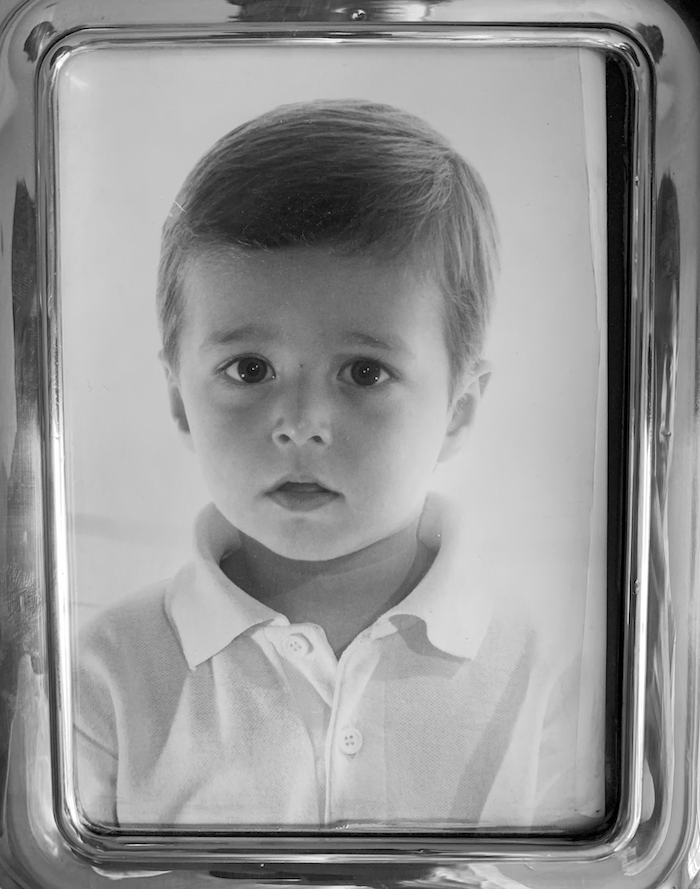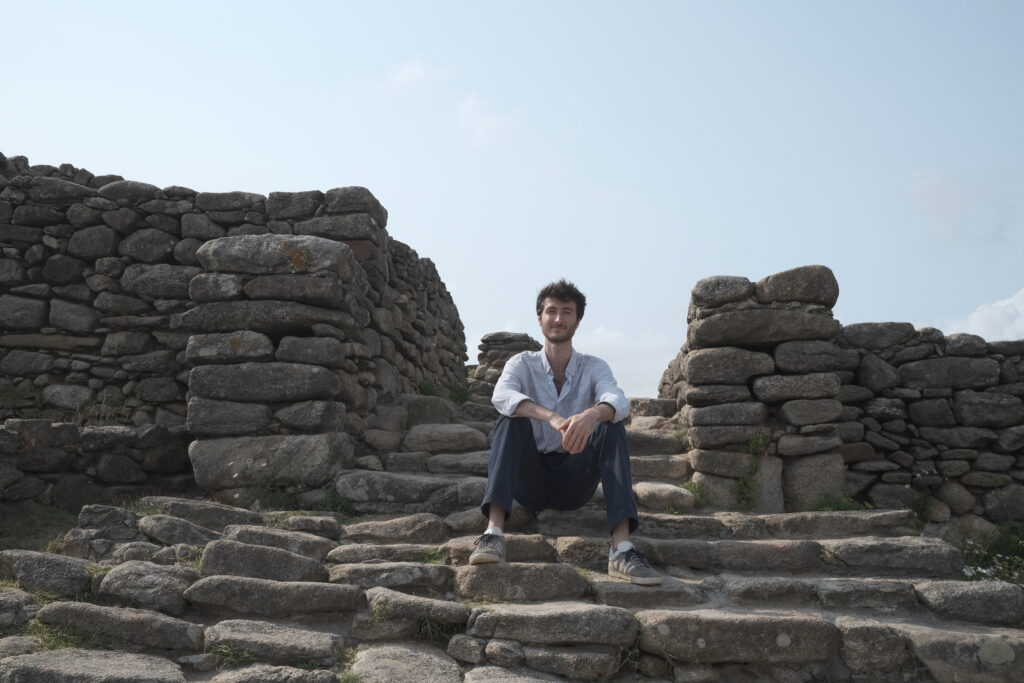Here’s another modern analogy: our mind is like a computer. On one hand, there’s the hardware: the CPU, the screen, the memories… On the other hand, there’s the software, meaning all the programs installed on the hardware. The hardware is what the computer really is, and the software determines what one can do with the computer. The hardware is innocent, in the sense that it doesn’t inherently have the ability to know whether the program is safe and useful or if it’s a virus. Too many viruses will cause the software to crash and the computer to become unusable. But the hardware remains immune and untouched by these viruses. It’s, so to speak, on another plane of existence.
In this analogy, the hardware is consciousness and the software is the content of our mind.
Consciousness is what we truly are.
It’s what comes from the factory and remains unchanged throughout our entire life.
It’s what we call “I.”
It’s what is seeing these words.
It’s what knows that you exist.
Consciousness is innocent, and nothing appearing in it can alter that innocence.
That’s the innocence of a child, who accepts everything they’re told as if it were true. That innocence is what we love about babies. But as children grow, the world incessantly bombards them with contradictory beliefs and information. If one is lucky, this programming will have glimpses of truth, especially if the child is often exposed to beauty. A less fortunate child will grow up surrounded by ugliness and receiving negative programming based on falsehood and separation. In any case, no human escapes this. As we grow, the mind becomes increasingly contradictory and dark, and the light of that innocence becomes obscured by clouds.
However, innocence hasn’t gone anywhere, and it accompanies us throughout our entire life. This is what the inner child represents. And it’s not that this child disappears into the catacombs of our mind. That innocence of the child is in the foreground, here and now, reading these words without knowing what degree of truth they contain. And it’s what will later watch the news without knowing whether it’s being told the truth or being manipulated with negative programs.
The human mind, by its innate structure, is incapable of discerning perception from essence and, therefore, the true from the false. This, combined with the innocence of consciousness, which says yes to everything, is the recipe for humanity’s great problem: ignorance. Not ignorance in the sense that we’re stupid, or that we don’t know many things, but that we don’t see the complete picture of who we are. Seeing only a fragment, it’s inevitable that we make mistakes. Those mistakes are what we call sin, but, as this perspective reveals, they’re not the result of evil, but of ignorance. We simply don’t know who we are.
This was said by Jesus: “Forgive them for they know not what they do.” Salvation is not from evil, but from ignorance.
Buddha also said this, explaining that the unenlightened human lives in a world of illusion (maya), repeating the same mistakes over and over again.
Socrates also said that man always chooses what he perceives as good, but is unable to differentiate what is truly good (essence) from what is false (illusion).
Descartes also spoke of this: there is an internal res cogitans (subjective appearance) and an external res externa or extensa (objective reality), and we are unable to differentiate one from the other.

Well, what does all this mean?
It means that from the moment we are born, we begin to incorporate all kinds of ideas from our environment as our own, without a filter to discern the true from the false. These ideas become beliefs. Our beliefs shape our minds in a certain way. We perceive the world not directly, but through our minds, and our beliefs become filters that manipulate this image. If the beliefs are erroneous, the image will get distorted and that life will be destined for suffering. If the beliefs are aligned with reality, the image will be more true, and that person will lead a more harmonious and happy life. In any case, we see what we believe, and that further reinforces our beliefs.
Our happiness/suffering ratio is directly related to the truth/falsity ratio of our beliefs. Here are some false beliefs with which almost all of us have been programmed and which keep us in an endless loop of suffering:
“The source of happiness is outside of me.”
“More money/consumption equals more happiness.”
“I am not enough.”
“My happiness cannot be complete without a partner.”
“My personal worth is determined by my professional success and external recognition.”
“Life consists of accumulating pleasurable experiences.”
“Time heals all wounds.”
“People don’t change.”
“If I express my emotions, others will think I am weak.”
“I must be perfect to be loved.”
“Being vulnerable is a sign of weakness.”
“Problems are always negative.”
“Failure is something bad and must be avoided at all costs.”
These beliefs are just some of the thousands that make up our current culture and, unless we were raised in the forest by enlightened parents, it is likely that our minds are deeply conditioned by them.

What a computer does depends on the programs it has installed. Similarly, what a human does depends on their beliefs. It’s inevitable. This morning, I reread Jesus’s Sermon on the Mount, and he says:
“Watch out for false prophets. They come to you in sheep’s clothing, but inwardly they are ferocious wolves. By their fruit you will recognize them. Do people pick grapes from thornbushes, or figs from thistles? Likewise, every good tree bears good fruit, but a bad tree bears bad fruit. A good tree cannot bear bad fruit, and a bad tree cannot bear good fruit. Every tree that does not bear good fruit is cut down and thrown into the fire. Thus, by their fruit you will recognize them.” [Matthew 7:15-20]
Beliefs are the software of our computer, and therefore they will determine how we function in the world. They become self-fulfilling prophecies in that sense. If a child is made to believe they are stupid and a poor student, that belief will cause the child to self-sabotage and be unable to achieve good grades. Conversely, if a child is trained to consider themselves brilliant and a great student, that belief alone will activate the necessary behaviors to fulfill that destiny. Much of this is largely unconscious; it simply becomes the way that person is.
Falsehood leads to suffering and conflict. Truth leads to peace and love. If there is suffering, you can be sure that there is some false program running in your mind; somewhere, there is a mistake that needs correction. This is true on an individual level but also on a social level. War is a consequence of falsehood. If an entire population is programmed with the belief that they belong to a superior race, disaster is inevitable. Goebbels, the Nazi propaganda minister, understood well the truth of what I am sharing here today about our innocence.

This week, I read something wonderful that is very relevant here. It’s from Dr. David R. Hawkins’ book, “Healing and Recovery”:
“When we look at ‘self-care,’ which is the capacity to love one’s self, we find it now means taking responsibility to protect ourselves from the consequences of that innocence and the willingness to undo mistakes that the mind picked up as a result.”
Regarding the first part (“to protect ourselves from the consequences of that innocence”), I personally try to be very conscious about the information I consume. Or rather, from which channels I receive that information. I stopped watching the news at the beginning of the pandemic (I don’t believe the media’s aim is to promote peace, love, and truth). I don’t watch violent or horror movies (my inner child is watching too). I read books written only by authors whom I sense have a certain degree of enlightenment. I use social media passively more than I’d like, and whenever I do, it leaves me with a more or less unpleasant feeling. When I abstain from it for several days, my sense of clarity and internal balance increases noticeably.
This, which may seem somewhat radical, doesn’t come from fear or paranoia, but from love and discernment. Jesus also says in his Sermon on the Mount:
“Enter through the narrow gate. For wide is the gate and broad is the road that leads to destruction, and many enter through it. But small is the gate and narrow the road that leads to Life, and only a few find it.” [Matthew 7:13-14]
It’s also useful to know that neuroscience offers several studies demonstrating how, when watching movies or playing video games (or even just using our imagination), our brains get shaped and configured as if we were actually having those experiences. If our brains are programmed with what violent movies and video games offer, this will have an immediate effect on our perception of the world, and that’s something very difficult to undo.
And that brings me to the second part, which is the challenging one: “to undo mistakes that the mind picked up as a result.”
This is the goal of true religions, teachers, spiritual traditions and, ideally, of the arts as well: to educate us and help us recognize the truth within ourselves so that falsehood falls away on its own. In this way, suffering disappears, and in its place, love, beauty, and truth grow more and more. The innocence of the child shines again, with its humility and full trust in its Caretaker, only now that innocence is self-aware and not so easily manipulated.
There are many practices and paths. It’s up to us to find our own. The important thing is what Terence McKenna said, “Take it easy, dude. But take it!”
With all my love,
A.

Subscríbete a Esferas



